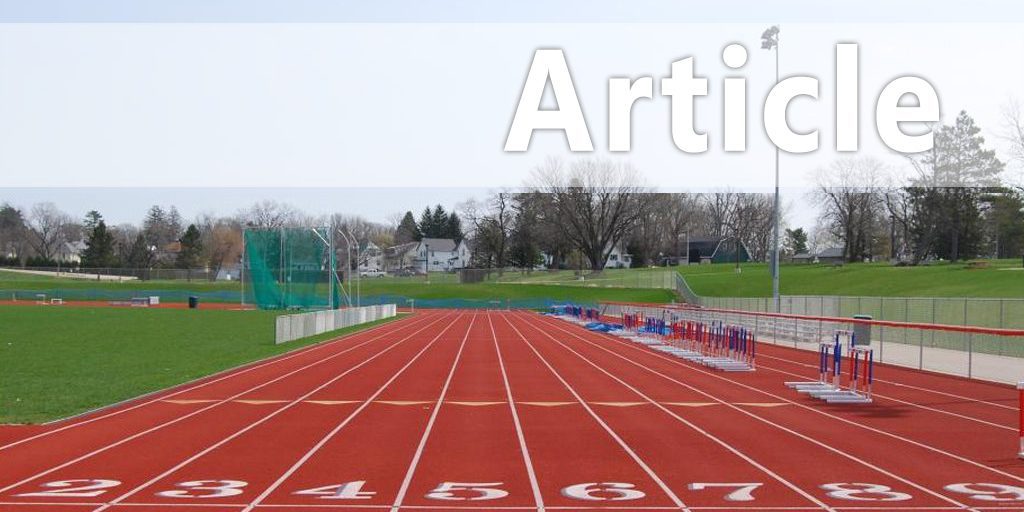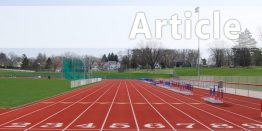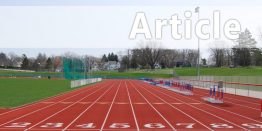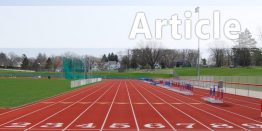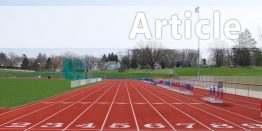|
Cross Country: What Are Your Objectives?
originally published on M-F Athletics - www.everythingtrackandfield.com
What could these considerations be? This article will examine several different scenarios that will determine which direction in training that a coach should lead their athletes. SCENARIO 1 - CROSS COUNTRY PEAK WITHOUT A SUMMER BASE PERIOD This situation addresses the coach who cannot work with his team during the summer months and does not have a formal indoor season. Each state has different rules governing contact with the coach and athletes. Some states allow team practices throughout July and August. In states like Massachusetts, the coach is prohibited from working with his athletes until eleven days prior to Labor Day. Unfortunately, under these rules, it is left up to the individual athlete to prepare for the upcoming season. Some schools allow what is known as “captain’s practices” which is a situation where the students are left in charge of each other throughout the summer. Some school districts (New Bedford, Massachusetts is one) do not condone “captain's practices”. If the athletes do not prepare during the summer then this makes for a very short pre-season under this scenario. What should the coach do? First Four Weeks Second Four Weeks Third Four Weeks SCENARIO 2 - CROSS COUNTRY PEAK WITH A SUMMER BASE PERIOD The summer would serve as “phase one” or as the first cycle. The final ten to twelve weeks that culminate in the final competition could be divided up into two - five or six week phases or cycles. Second Cycle Final Cycle Volume would decrease slightly during this cycle as intensity increases. Volume would drop off more dramatically in the final ten to fourteen days of this cycle. Key points of emphasis during this cycle would look similar to the final phase of scenario number one. It is important to remember that the goal is to sharpen the athlete during this phase and not to overload their systems. SCENARIO 3 - CROSS COUNTRY WITH BOTH AN INDOOR AND OUTDOOR SEASON TO FOLLOW In scenario 3, the coach has to decide which path to follow with three consecutive seasons. Do you attempt to peak all three seasons? It is not an approach that I favor but that doesn’t mean that this path will not work for you. Personally, I just don’t feel that the mountain that the athlete will scale during each peak will be as high as the one(s) that the 2-peak or 1-peak athlete will reach. The more practical approach is a one or two peak program. A two-peak approach would attempt a peak for the end of cross country and the end of outdoor track. A one-peak approach would build throughout the year with the plan to reach the ultimate peak at the end of the racing season. The coach would set up their training plan depending upon which of the above “plans of attack” (3-peak, two-peak or one-peak) would be instituted. Obviously, in a two peak with the peaks in the fall and spring seasons would see the summer and winter months serving as the base or pre-competition (conditioning) periods. OTHER CONSIDERATIONS There are many other factors to consider in addition to the number of competitive seasons each athlete will be competing. The answers to questions like this should be factored into how you prepare your team. CONCLUSION You can start “sculpturing” your workouts once you have determined which direction that you want to take your cross country team. As stated earlier, there are thousands of articles and texts that have been published that outline seasonal training plans. I suggest reading (if you haven’t already) texts such as: and many others. Reading a number of different training texts will help in you forming a training plan that works best for your situation. |
|
About the Author... |
|
|
| Coach Steve Gardiner enjoyed a solid athletic career at SMU (class of '74), earning multiple varsity letters and playing an important role on SMU's undefeated 1971 cross country team. He was inducted in the Corsair Athletic Hall of Fame in 2003 for his continued support of UMass Dartmouth and his contributions to student-athletes as a cross country coach and track and field coach at New Bedford High School for more than 20 seasons. In his nomination letter, former SMU teammate William Kelly (SMU '75) described Gardiner's coaching career by writing, "In my judgment, no area individual has had a greater effect on these two sports than Steve Gardiner."
On several occasions throughout his scholastic coaching career, Gardiner has been selected The Boston Globe Division I Coach of the Year for regularly sending top quality individuals and teams to state championship meets. Several of his athletes have gone on to enjoy collegiate careers, any at top schools across the nation. In describing Gardiner's coaching career, Kelly praised him for playing an important role in the personal development of all of his student-athletes. "Today, the image of sports at all levels that the public so often encounters is of athletes and coaches who are stars in their own movies, who prize celebrity over competence, who celebrate the individual at the expense of the team. A coach like Steve Gardiner reminds everyone that this image isn't always the case, that an athletic program where the emphasis is on the mastery of fundamentals and the sheer joy of competition is alive and well." |


